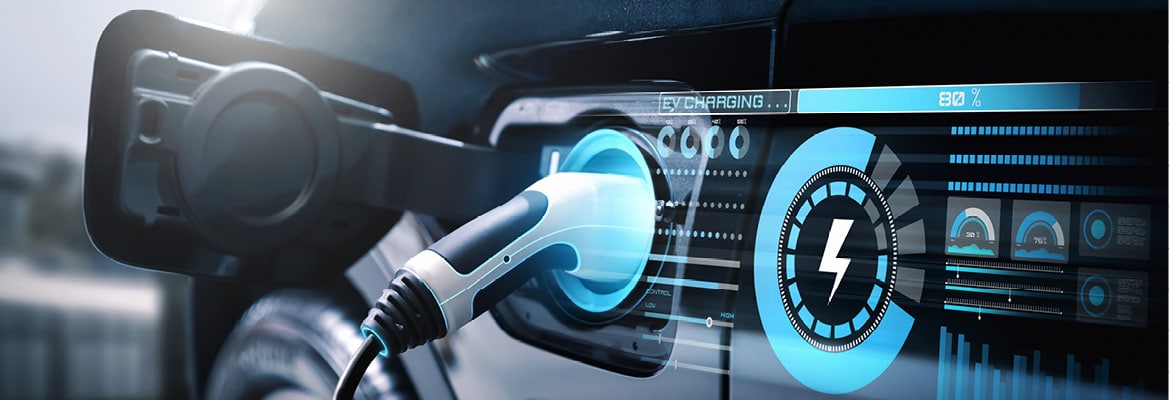Author(s)
- Key takeaways
- Understanding electric car maintenance
- Essential maintenance tasks for electric cars
- Electric car battery life and maintenance
- Maintenance costs: electric vs. gas-powered cars
- Finding quality EV maintenance services
- Buying an EV from out of state?
- Securing optimal performance
- Frequently Asked Questions
Electric vehicles are a great way to keep maintenance costs low while reducing carbon emissions. In this blog post, we will explain electric car maintenance and compare it to that of gas-powered vehicles. EV maintenance may seem daunting at first, but it’s quite simple!
Key takeaways
- Electric cars have fewer moving parts as well as innovative features like regenerative braking, resulting in lower maintenance costs.
- Regular tasks such as checking brakes, tires, suspension and fluids keep electric cars running smoothly and safely.
- Electric car batteries typically come with 8-10 year warranties. Follow tips for prolonging battery life.
Understanding electric car maintenance
Electric vehicles provide an attractive alternative to conventional gas-powered cars, especially because of their significantly lower maintenance costs. This is mainly attributed to fewer parts in need of service and features such as electric motors with regenerative braking systems. As a result, running and maintaining an EV proves more straightforward than its combustion engine counterpart.
Regenerative braking
EVs stand out from their gas-powered counterparts due to a feature known as regenerative braking. As the motor slows down the car, it captures kinetic energy and returns it back into its battery pack. This offers a longer brake life along with decreased maintenance costs for electric cars overall.
Essential maintenance tasks for electric cars
An EV owner needs to keep up with routine tasks such as tire care, fluid assessments and suspension maintenance. This will extend your vehicle’s lifespan significantly while providing a consistent and enjoyable ride.
Tire care
Taking good care of the tires is crucial for electric cars to perform well and ensure safety. Tire rotation should occur every 5,000 to 7,500 miles to maintain peak efficiency. Keep an eye on pressure levels and signs of wear that could indicate potential problems or safety hazards when driving.
Fluids and filters
Check and replace windshield washer fluid, brake fluid, coolant and transmission liquids to prevent potential problems and keep the vehicle running smoothly over time. The cabin air filters are also critical for proper function and comfort.
Suspension
Regular maintenance of an EV’s suspension and chassis is crucial in preserving its performance, safety and ride quality. Inspecting the components at least annually or every 7,500 miles (especially if you frequently drive on uneven roads) can help you avoid potential issues.
Electric car battery life and maintenance
EV batteries are generally maintenance-free and typically last anywhere between 8 and 15 years. It’s helpful to understand your battery to help keep it in peak condition.
Battery warranty and replacement costs
Most EV manufacturers offer at least an 8-year/100,000-mile warranty on their batteries, some offer up to 10 years. Battery replacements outside of warranty are rare, but if necessary, the cost could range between $5,000 and $20,000 based on the pack, size and manufacturer.
Tips for prolonging battery life
There are various methods to keep your electric car’s battery healthy and performing optimally.
1. Minimize exposure to extremely high temperatures when parked.
2. Avoid the use of fast charging to avoid battery degradation.
3. Maintain an optimal battery charge level between 20% and 80%.
Just by following these 3 tips, you can prolong your battery life and enjoy a powerful driving experience.
Maintenance costs: electric vs. gas-powered cars
Electric cars have significantly lower maintenance costs compared to gas-powered models. No spending money on oil changes, smog tests or belt replacements as electric vehicles lack many of those complex mechanical parts. Overall, EV maintenance costs are estimated to be about 10-30% of a gasoline car.
Although EVs generally have lower maintenance costs than conventional vehicles, individuals should still consider potential expenses. Electric vehicles are heavier than gas-power vehicles and as a result, their tires may need replacing more frequently.
Finding quality EV maintenance services
Maintaining the peak performance of your vehicle relies on high-quality upkeep. While EVs may not require as frequent servicing as non-electric vehicles, they are not exempt from specialized care. It’s crucial to entrust your EV to experts or authorized dealers who understand its unique needs. By leveraging their specialized knowledge, you can ensure your vehicle receives the comprehensive care it deserves, keeping it in optimal condition for years to come.
When performing tasks on your own, such as filling windshield washer fluid, changing wiper blades or checking the tire pressure, it is important to take certain precautions. Follow all instructions in the owner’s manual and make sure to wear safety equipment like goggles and gloves if recommended.
Buying an EV from out of state?
If you found the perfect EV, but it’s located in another state, simply arrange for it to be shipped to your door. Montway Auto Transport can help. As one of the nation’s leading auto transport companies, Montway has experience arranging car shipping for all types of cars, including EVs. Request a free instant quote for your vehicle shipment or speak with a Montway service advisor at 888-666-8929 to learn more.
Securing optimal performance
Regularly checking brakes, tires, suspension and fluids are essential to keep EVs running smoothly. By finding certified service centers that specialize in electric vehicle maintenance, you can keep money in your pocket while enjoying its ecological advantages.
Frequently Asked Questions
Do electric cars need maintenance?
Yes. Regular maintenance is just as essential for electric cars as with other vehicles. Despite having fewer moving parts, an EV needs to have components like tires and brakes inspected regularly. The battery pack must be monitored to keep track of any deterioration over time.
What kind of maintenance does an electric vehicle need?
Some maintenance tasks for electric cars include brake pad replacements, tire rotations and cabin air filter replacements. Also, it’s essential to have the battery’s health checked regularly, especially in hotter climates.
How often do you need to service an EV?
Electric cars need to be maintained as per the manufacturer’s guidelines. Generally, electric cars require a service checkup once a year or every 10,000-20,000 miles.
What is the lifespan of an electric car?
The lifespan of an electric car battery depends on its usage, environment and battery type. Typically, the battery capacity of an electric car reduces to 70-80% of its original capacity in 8 to 10 years. With proper maintenance, an electric car can last for more than 15 years.
What is regenerative braking?
With regenerative braking, energy is recovered and put back into the car’s battery. This process can extend the overall range of the vehicle, making it more energy efficient.
How long do EV batteries last and how can I prolong their life?
The batteries of electric cars have an estimated life span of 8 to 15 years, which can be extended by avoiding extreme temperatures, minimizing fast charging and keeping charge levels optimal. EVs tend to use more energy in the winter, reducing driving range, but there are ways to maintain it.








